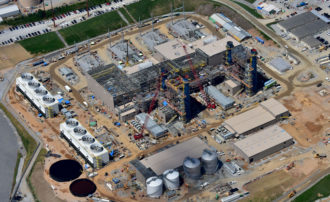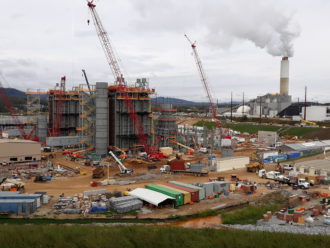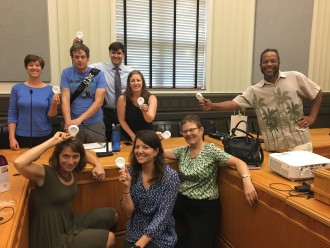The Buncombe County Board of Commissioners will vote on a resolution to adopt LEED Gold standards for new public facilities over 10,000 square feet and major renovations. The county’s policy would also require all new buildings to be constructed with solar-ready design and achieve net-zero energy use “where feasible.”













